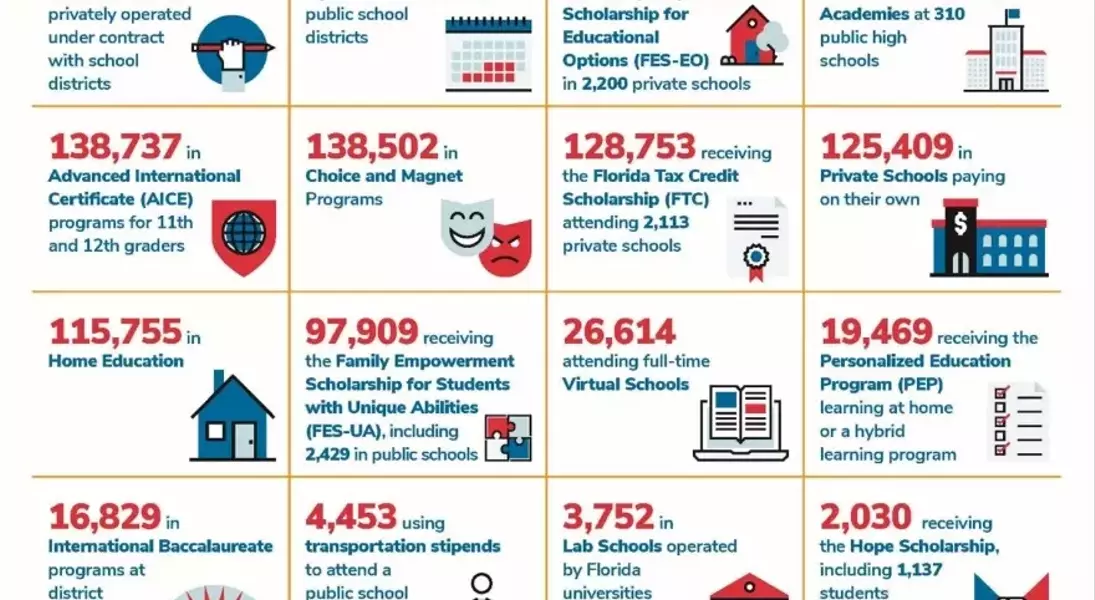
In a groundbreaking shift, over half of Florida's K-12 students are now choosing alternative educational paths rather than attending their neighborhood public schools. According to data from Step Up For Students, the nonprofit managing the state's voucher programs, nearly 1.8 million students, or 51% of all K-12 students in Florida, selected options such as private, charter, home schooling, or magnet programs during the 2023-2024 academic year. While this trend is celebrated by some as empowering families, education experts like Michele Gill warn it could lead to challenges for traditional public schools, including reduced funding and potential segregation.
The Rise of School Choice in Florida
In the vibrant and dynamic educational landscape of Florida, an increasing number of families are embracing school choice initiatives. In the recently concluded academic year, more than half of the state’s K-12 students opted out of their zoned public schools, favoring alternatives like private institutions, charter schools, and specialized programs. This significant movement has been driven by expanding scholarship opportunities and growing support from policymakers, including Governor Ron DeSantis and former Commissioner Manny Diaz Jr.
Data indicates that public schools of choice, such as charter schools and magnet programs, remain the most popular among families. However, there has also been a notable rise in enrollment in private and home schooling options, thanks to expanded eligibility criteria for scholarships like the Family Empowerment Scholarship for Educational Options (FES-EO) and the Florida Tax Credit Scholarship (FTC). These programs collectively saw an increase of approximately 116,000 students during the 2023-2024 school year.
From a geographical perspective, counties across Florida have experienced varying levels of participation in these school choice programs. For instance, Broward County reported one of the highest numbers of applications, reflecting its diverse population and commitment to providing tailored educational experiences for its youth.
Despite the enthusiasm surrounding school choice, concerns persist regarding its long-term impact on traditional public schools. Experts highlight the risk of overcrowding and diminished resources, which may disproportionately affect low-income families and students with disabilities.
As the new academic year approaches, interest in school choice continues to grow. Applications for scholarships have surged, with over 120,000 families submitting requests within the first two days of the portal opening—a testament to the evolving priorities and needs of Florida's families.
This transformation signifies not only a change in how education is delivered but also a redefinition of what constitutes a "choice" in schooling. Even attending a district-assigned school is increasingly seen as one option among many.
From a journalist's perspective, this phenomenon offers valuable insights into the complexities of modern education policy. The rise of school choice underscores the importance of balancing innovation with equity, ensuring that all children, regardless of background, have access to quality education. It challenges us to rethink traditional models and consider how best to allocate resources to meet the diverse needs of today's students. As Florida leads the nation in embracing this paradigm shift, it sets an example for other states while simultaneously raising critical questions about the future of public education.
